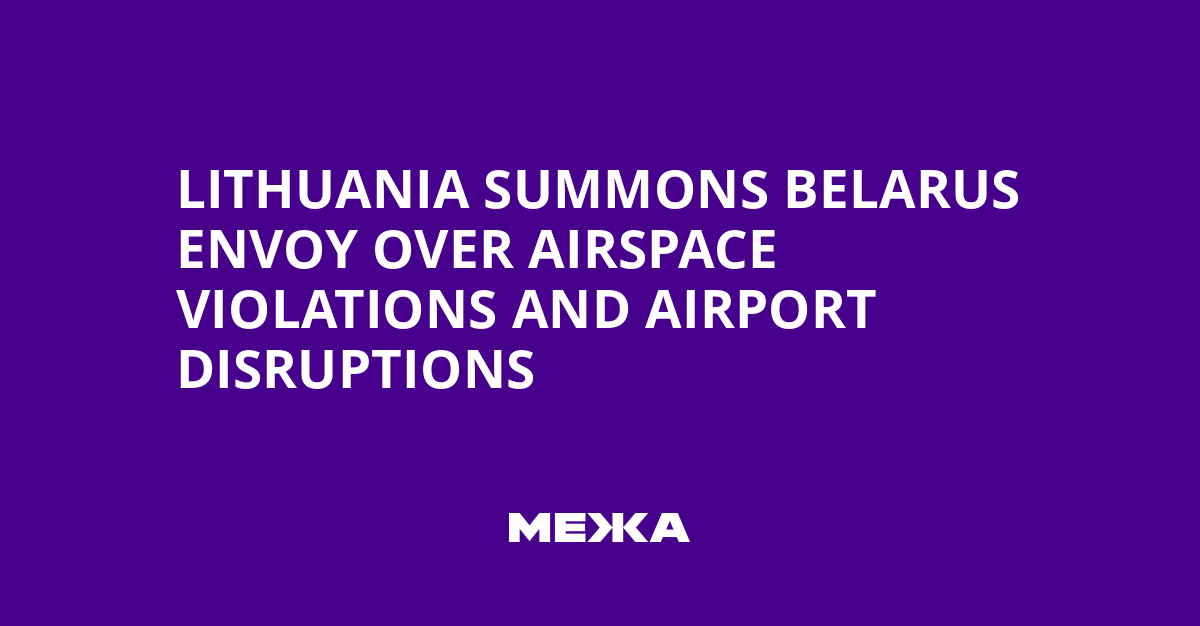
As reported by Ministry of Foreign Affairs of Lithuania
On 22 October, Lithuania’s Ministry of Foreign Affairs summoned the temporary chargé d’affaires of Belarus over the violation of Lithuania’s airspace by Belarus. This information was published on the Lithuanian MFA’s website.
On 21 October, balloons flew over Lithuania from Belarus. As a result, Lithuania’s airport was compelled to suspend operations, leading to economic losses for the aviation sector and related services.
The Ministry of Foreign Affairs of the Republic of Lithuania stressed that violations of the state border grossly violate international law. The MFA called on Belarus to ensure control over its airspace, reminded of prior violations of Lithuania’s airspace by the Belarusian side, demanded their investigation and prevention of recurrence. The MFA also warned that in the case of further illegal violations of Lithuania’s airspace, Lithuania reserves the right to take appropriate countermeasures.
The Prime Minister of Lithuania, Inga Rugienė, convened an urgent meeting of the National Security Committee in connection with the breach of the country’s airspace.
There have also been previous incidents: on 5 October, Vilnius Airport closed due to a similar incident with balloons. On 26 September, seven flights at the capital’s airport faced problems due to drone flights: four flights departed late, three landed late.
Context of incidents and possible actions
Incidents involving balloons and drones in the region underscore the importance of airspace control and coordination between countries. Lithuania states its readiness to take appropriate steps to prevent repeat violations and minimize the economic impact on the aviation sector and air travel.
Outlook for the development of the situation
Keeping the situation under control, Lithuanian authorities emphasize the need for effective response and deterrence of similar incidents in the future. Further actions may include consideration of countermeasures and strengthening airspace monitoring by the relevant services.